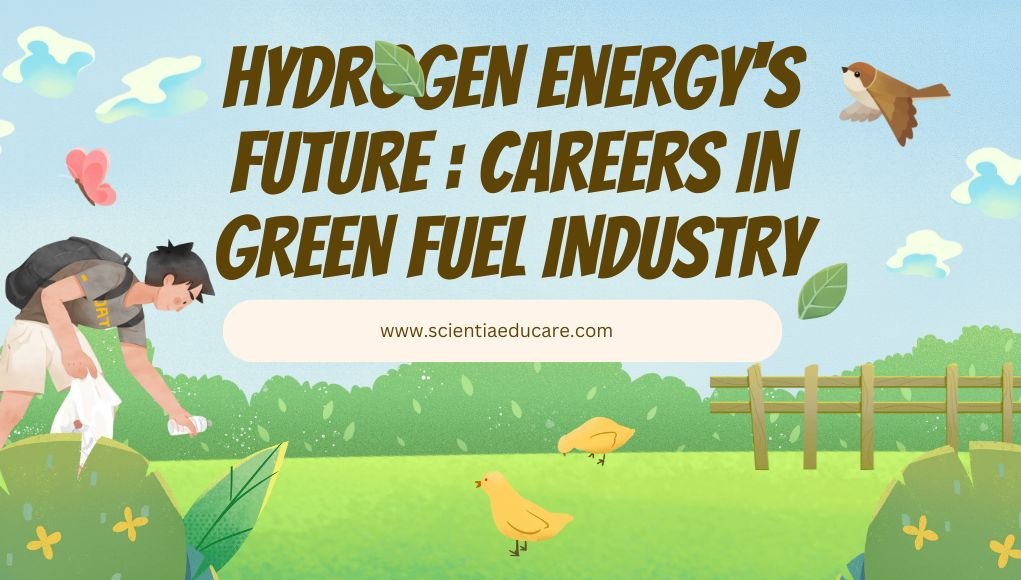The Future of Hydrogen Energy & Green Fuel Careers
The global shift towards sustainable energy solutions has placed hydrogen energy and green fuels at the forefront of the clean energy revolution. As nations strive to reduce carbon emissions and combat climate change, the demand for professionals skilled in hydrogen technologies is surging. This article delves into the future of hydrogen energy, explores emerging career opportunities, and highlights educational pathways for aspiring individuals in this dynamic field.
Careers in hydrogen energy sector,
Green hydrogen production jobs,
Renewable energy job opportunities,
Sustainable fuel industry careers,
Hydrogen fuel cell technology positions.
The Rise of Hydrogen Energy
Hydrogen, the most abundant element in the universe, is gaining attention as a versatile and clean energy carrier. When utilized in fuel cells, hydrogen produces only water as a byproduct, making it an environmentally friendly alternative to fossil fuels. Recent advancements in technology and decreasing production costs have accelerated the adoption of hydrogen across various sectors.
For instance, Finland has recently inaugurated its first green hydrogen plant, marking a significant milestone in the country’s commitment to sustainable energy. This facility utilizes renewable energy sources, particularly wind power, to produce green hydrogen, underscoring the growing global investment in hydrogen infrastructure.
 Career Opportunities in Hydrogen and Green Fuels
Career Opportunities in Hydrogen and Green Fuels
The burgeoning hydrogen economy is creating a plethora of job opportunities across multiple industries. According to the International Renewable Energy Agency (IRENA), renewable energy jobs have nearly doubled in the last decade, reaching 13.7 million in 2023.
This growth is expected to continue, with hydrogen playing a pivotal role in the energy transition.
Key Sectors and Roles
-
Research and Development (R&D): Innovations in hydrogen production, storage, and distribution are critical. Roles in R&D focus on developing efficient electrolysis methods, fuel cell technologies, and sustainable hydrogen storage solutions.
-
Engineering and Manufacturing: Engineers are needed to design and construct hydrogen production facilities, fuel cells, and related infrastructure. Manufacturing professionals oversee the production of components essential for hydrogen systems.
-
Operations and Maintenance: Technicians and operators manage the daily operations of hydrogen plants and ensure the maintenance of equipment, ensuring safety and efficiency.
-
Project Management: Project managers coordinate the planning, execution, and completion of hydrogen projects, ensuring they meet regulatory standards and are delivered on time and within budget.
-
Policy and Regulatory Affairs: Experts in this area develop and implement policies that promote hydrogen adoption, navigate regulatory frameworks, and ensure compliance with environmental standards.
-
Sales and Marketing: Professionals in sales and marketing promote hydrogen technologies and solutions to industries and consumers, driving market adoption.
Global Job Prospects
The demand for hydrogen professionals is global, with significant opportunities in regions investing heavily in hydrogen infrastructure. For example, the United States has introduced production tax credits to incentivize clean hydrogen production, providing clarity and support for developers in the sector.
In Europe, countries like Denmark are transforming regions like the North Sea into hubs for renewable energy, including hydrogen production, creating numerous career opportunities in the process.
Additionally, the International Energy Agency (IEA) projects that based on current policies, 8 million clean energy jobs will be added worldwide by 2030, with hydrogen playing a significant role in this growth.
Educational Pathways
Pursuing a career in hydrogen energy and green fuels requires specialized education and training. Several top universities and institutions worldwide offer programs tailored to this field.
Notable Institutions Offering Hydrogen and Renewable Energy Programs
-
University of Houston (USA): Offers a Hydrogen Economy Program in collaboration with the American Institute of Chemical Engineers, focusing on the economic and technological aspects of hydrogen energy.
-
Technische Hochschule Ingolstadt (Germany): Provides a Master’s in Hydrogen Technologies and Economics, available both online and on-site, covering various facets of hydrogen technology and its economic implications.
-
University of Michigan (USA): Through the MI Hydrogen initiative, the university conducts research and offers educational opportunities focusing on transportation, industrial applications, and hydrogen ecosystem planning.
-
Federal University of Technology Owerri (Nigeria): Hosts the Africa Center of Excellence in Future Energies & Electrochemical Systems, offering master’s and doctorate degrees in areas like Future Energies and Electrochemical Technology.
-
University of New South Wales (Australia): Recognized as the first university to offer a degree in solar energy, it provides comprehensive programs in renewable energy technologies.
Skills and Competencies
Success in the hydrogen sector demands a blend of technical expertise and soft skills. Key competencies include:
-
Technical Proficiency: Understanding of hydrogen production methods, fuel cell technology, and energy systems.
-
Problem-Solving Abilities: Capacity to develop innovative solutions to technical challenges.
-
Adaptability: Willingness to stay updated with evolving technologies and industry trends.
-
Collaboration: Ability to work effectively in multidisciplinary teams.
-
Communication Skills: Proficiency in conveying complex technical information to diverse audiences.
Further Reading
For those interested in delving deeper into hydrogen energy and associated career opportunities, the following resources offer valuable insights:














